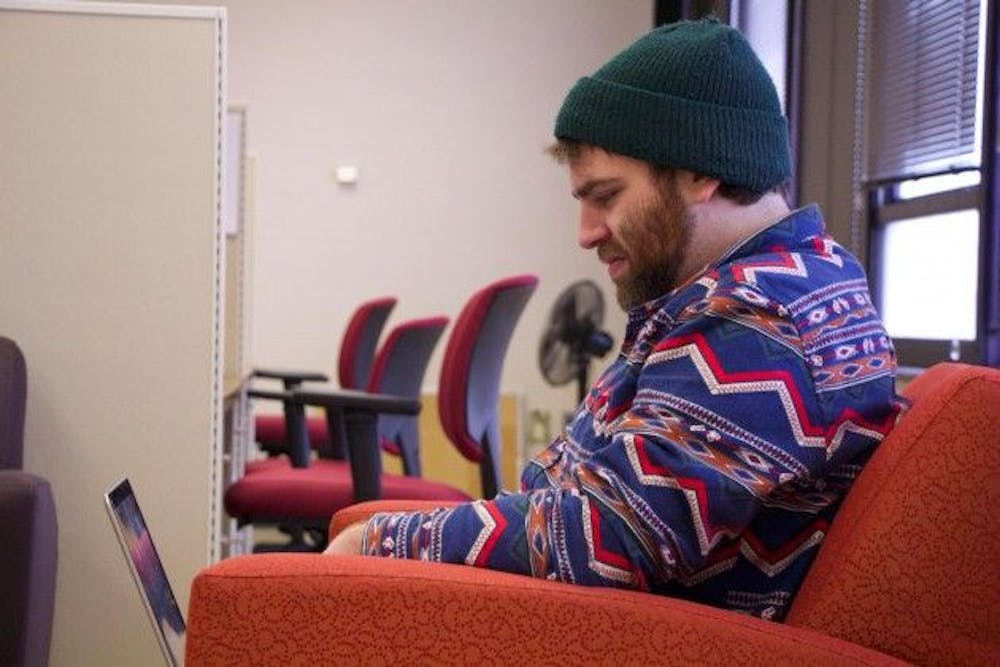After a student crosses the finish line and wraps up four years of academia, they are often faced with the difficult decision of joining the workforce or returning to graduate school to further their degree. It is a simple decision for few, leading graduates down a road less traveled by taking a year - or more - off to make the decision.
For journalism graduate student Zachary Losher, taking a break was an important step in finding out what he wanted to pursue in life.
"When I first got out of undergraduate program, I didn't actually want to go to graduate school," Losher, 26, said. "I thought that I would just try to use my degree to get a job, but I never got a job that I was happy with and that I could see myself doing for more than a few months at a time."
During his three-year-break from school, Losher worked five different jobs before deciding to go back to further his studies.
However, upon returning to college, Losher had made revelations within his career path. Losher said that as an undergrad he acquired an English degree with a minor in art history. However, during his break, he realized he wanted to pursue media studies, a program within journalism that focuses on the research of how people consume and align with media.
"It's something I wouldn't have jumped into. If I had gone into grad school right away I would've jumped into an English literature and art history program," Losher said. "Taking that time off really let me think about things for a long time. It changed what I wanted to get out of school."
Losher also noted that during his hiatus from school, he learned a lot about life and himself, as well as figuring out what he wanted to do.
"For me, the break was valuable because I had no idea what I was doing, so it helped me figure out what the right type of school to go to and what I really wanted to study," Losher said. "I don't necessarily regret taking the break. I did learn a lot about life and myself and things like that, but at the same time I wish I was already done with school completely."
Through his experience working at entry-level positions, Losher added that having a specialized-formal education could be the difference between a promotion and being stuck in the same spot.
"There are a lot of highly specialized jobs nowadays, you might be able to get an entry position at a job you love and work there for three or so years, but when you're up for a promotion you may not be able to get it because you don't have the educational criteria," Losher said.
However, he also added that working towards a specific Ph.D., which he said is his ultimate goal, could also have some negative effects when looking for a very specialized position.
"There is always a danger about going through some long and extensive specialized educational program and then the job market ends up being saturated with people with the same education as you," Losher said. "I would recommend knowing about the type of field and market you want to go in, researching the people who have those jobs you want and see how they got them."
One thing Losher said helped him figure out what he wanted to academically pursue was reading, and that researching prominent figures in a possible field could produce some very beneficial knowledge about the subject in regarding to school and the steps needed to achieve personal goals.
"Read all the time, anything that interests you. Find out who the smart people are in the field you're considering and that have already written a lot of smart things," Losher said. "You'll have a better knowledge base when graduate school does roll around and you'll be a better student."
Although Losher clearly stated that graduate school or any other time of former education is typically beneficial, it may not have as much relevance towards other careers.
"It'd be short sighted to say that everyone who goes to college needs to go to graduate school. It just really depends on what you want to do," Losher said. "I would feel bad making a statement telling any undergrad that they all need to go to graduate school, but it is a good thing for most people."
Though Losher said there are pros and cons to both taking time off and getting a graduate degree in general, the job market is constantly getting more competitive and that is always helpful to have an extra edge on the competition.
"There used to be this huge market but what separated you was this college degree, but with a college degree being the new high school diploma what separates you is this masters degree, this Ph.D, this nursing certificate or dietician certificate," Losher said.




